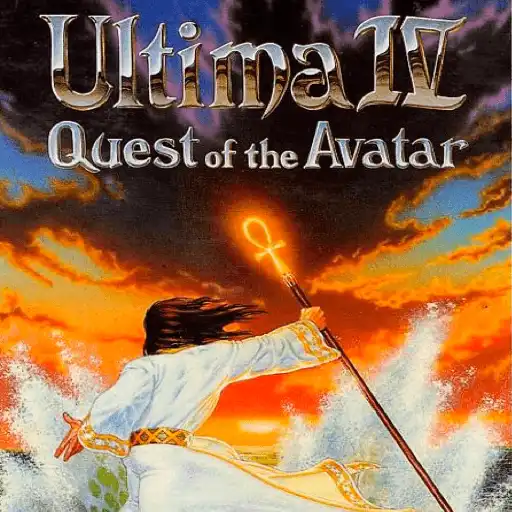
Ultima IV Quest of the Avatar: A Comprehensive Guide to Completing the Journey
"Ultima IV: Quest of the Avatar" stands out as a pivotal moment in video game history. This game, released in 1985, shifted the focus from mere combat to a deeper quest for virtue and personal growth.
Players are challenged to embody the principles of the eight virtues, seeking not just to conquer foes but to become a better person.
The innovative gameplay allowed direct interaction with characters and an expansive world to explore. As a title in the Ultima series, it set new standards for storytelling and character development. Its blend of adventure and morality influenced countless games that followed, illustrating the potential of video games as a narrative medium.
For those curious about its impact, "Ultima IV" marked the beginning of a new era in role-playing games, fostering a legacy that still resonates with gamers today.
Key Takeaways
- Players focus on moral choices and character growth.
- The game introduced groundbreaking mechanics for its time.
- Its legacy continues to influence modern RPGs.
History and Development
"Ultima IV: Quest of the Avatar" marked a pivotal moment in role-playing games (RPGs), focusing on moral choices and character development. Its creation involved a shift from traditional gameplay and introduced players to a more meaningful narrative.
Concept Creation
Richard Garriott, the creator of the Ultima series, wanted to set "Ultima IV" apart from its predecessors. Instead of simply battling monsters, he aimed to create a game centered around ethical decisions.
He believed that players should strive for truth, love, and courage. This change laid the groundwork for the game's unique quest: to become the "Avatar."
The original concept was inspired by philosophical ideas. Garriott incorporated elements of Eastern and Western philosophies, encouraging players to contemplate their actions.
The development team focused on creating a rich lore that players could explore deeply. This shift in focus began to define the games of the "Age of Enlightenment" trilogy.
Game Design Evolution
The game evolved significantly from earlier titles in the series. The graphics and gameplay were enhanced while maintaining a turn-based system. It allowed players to explore a larger, interconnected world.
A focus on dialogue with characters gave players the chance to make choices that deeply impacted the narrative.
Innovative features included the introduction of a virtue system. Players' actions influenced their standing in the game. This was a novel approach at the time, making gameplay more immersive.
The game was released first for the Apple II in 1985, with later ports for other systems like the Commodore 64 and NES. Each version contributed to expanding the audience and solidifying "Ultima IV" as a classic in gaming history.
Gameplay Mechanics
The gameplay mechanics of "Ultima IV: Quest of the Avatar" offer players a unique experience focused on character growth, moral choices, and an engaging quest structure. Understanding these elements is key to navigating the game effectively.
Character Creation
In "Ultima IV," character creation is crucial. Players choose one of several character classes, including a fighter, mage, or bard. Each class has unique strengths, weaknesses, and specific skills.
Players name their characters and can customize attributes like strength, intelligence, and dexterity. These attributes influence combat abilities, spellcasting, and interactions with other characters.
It’s essential to know that the player's choices affect the overall experience. For instance, a character skilled in magic might handle situations differently than a combat-focused character. This creates a diverse gameplay experience.
Quest Structure
The quest structure in "Ultima IV" stands out due to its emphasis on exploration and moral choices. Unlike many RPGs, the player's goal isn't just defeating enemies but achieving the title of Avatar by mastering eight virtues.
Quests often require players to visit various towns, collect items, and engage with NPCs. Completing these tasks provides valuable experience that helps progress characters.
Most quest-related items also grant experience, which can significantly boost character development.
Players are encouraged to explore freely in a vast open world. This non-linear approach means they can tackle quests in different orders based on their preferences and decisions.
Morality System
The morality system in "Ultima IV" is unique and central to the gameplay. Players must follow the eight virtues: Compassion, Honor, Sacrifice, and others. These virtues guide decisions throughout the game.
Choices impact the character's standing within the game's world. For example, showing kindness to an NPC might yield rewards or allies, while acting selfishly could have negative consequences.
This system encourages players to think critically about their actions. Balancing different virtues adds depth to the gameplay, making it not only about combat but also about personal growth and ethical decision-making.
Impact and Legacy
"Ultima IV: Quest of the Avatar" left a significant mark on the gaming world. Its innovative features transformed the role-playing game (RPG) genre and influenced countless games that followed. The game's reception at launch and its lasting impact demonstrate its importance in gaming history.
Critical Reception
At its release in 1985, "Ultima IV" received praise for its innovative approach to storytelling and gameplay. Reviewers highlighted the game's emphasis on virtues and moral choices. It stood out in an era filled with combat-focused RPGs.
Many critics considered it a major advancement in the genre.
Game enthusiasts enjoyed the open-world exploration and character development. The thoughtful design allowed players to create personal experiences. Its engaging narrative also forged a connection with players. Over time, this game solidified its reputation as a classic, earning accolades from various publications.
Influence on RPG Genre
"Ultima IV" set new standards in the RPG genre. It introduced the concept of virtue-based gameplay, allowing players to make moral choices that affected the story.
This idea has influenced many future RPGs, encouraging character growth beyond combat.
The game also pioneered the open-world structure that later titles embraced. Players explored a vast world, interacting with characters and completing quests at their own pace.
Its detailed world-building and non-linear gameplay paved the way for modern RPGs.
Many elements from "Ultima IV" can be seen in franchises like "The Elder Scrolls" and "Final Fantasy." These games adopted its narrative depth, complex characters, and the significance of player choices.
Thus, "Ultima IV" remains a foundational title in the development of role-playing games.







